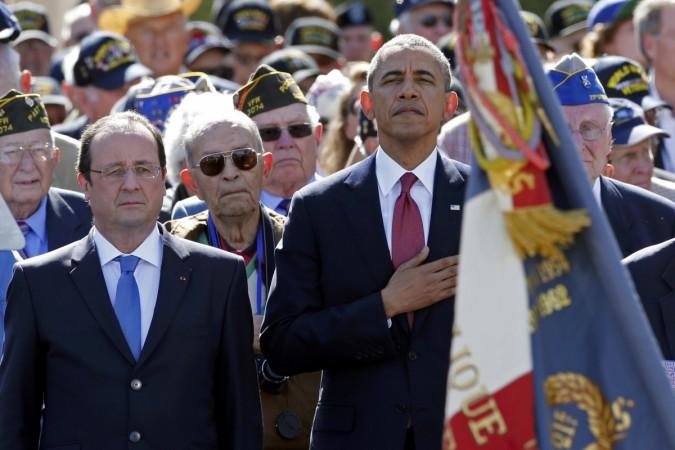
World leaders, including the head of governments of France, the US, Russia as well as the monarch of United Kingdom, have gathered in France's Normandy to mark the 70th Anniversary of the D-Day landings.
France's president launched the commemorations by paying tributes to those who died that day "changing the world." Francoise Hollande and the US President Barack Obama attended a service at a war cemetery in Bayeus. Queen Elizabeth also laid a wreath there.
They, along with the other world leaders and veterans are also gathering at Ouistreham, one of the beaches where the armies of the Allied forces landed in 1944.
While the ceremony has great historic significance, the day is increasingly casting a gloomy shadow of a political nature, with the Russian President Valimir Putin expected to ruffle the feathers of many Western leaders, perturbed by Russia's infamous violence in Eastern Ukraine and its recent annexation of Crimea.
The Normandy landings, also called D-Day was one of the most famous days in Europe's history. Known as the largest seaborne invasion in history, it was when Allied force landed in Normandy beaches in 'Operation Neptune' during the World War II.
D-Day was when the force began the invasion of German-occupied Western Europe, an event that led to the restoration of the French Republic and the final victory of the Allied forces in the war.
Claim of Freedom, Written in Blood
President Barack Obama, in his address said that Normandy's battleground signified "common struggle for freedom."
Calling the site of the D-Day landings a "democracy's beachhead," he said: "America's claim — our commitment to liberty, to equality, to freedom, to the inherent dignity of every human being — that claim is written in blood on these beaches, and it will endure for eternity."
He spoke from the Normandy American Cemetery and memorial, where nearly 10,000 white tombstones stand giving a stark reminder of the violence of the Omaha Beach fighting in 1944. Obama's description of the bloodshed that occurred at the day was minute and descriptive. He recalled that "by daybreak, blood soaked the water" and "thousands of rounds bit into flesh and sand."
"We come to remember why America and our allies gave so much for the survival of liberty at its moment of maximum peril," Obama said. "And we come to tell the story of the men and women who did it, so that it remains seared into the memory of the future world."
The Putin Factor
Notwithstanding the glorious history for the Allied forces the day symbolizes, the happenings of the day was overcast by a dark shadow of gloom and unease over the ongoing conflict between the Western-allied international community and Russia.
"I have no doubt that I'll see Mr. Putin, and he and I have always had a businesslike relationship and it is entirely appropriate that he is there to commemorate D-Day given the extraordinary sacrifices that were made of the people of the Soviet Union during World War II," Obama said earlier in a press conference during the meet of G7. "Should we have the opportunity to talk, I will be repeating the same message that I've been delivering to him throughout this crisis."
The celebration also comes just a day after Obama warned Russia over Ukraine saying Putin "has a chance to get back into a lane of international law."
"The mere fact that some of the Russian soldiers have moved back from the border and that Russia is now destabilizing Ukraine through surrogates, rather than overtly and explicitly, does not mean that we can afford three months, or four months, or six months, of continued violence and conflict in eastern Ukraine," Obama said.
If Russia chooses not to de-escalate the situation, the G7 leaders are united and ready to impose further painful economic sanctions, with consequences for Russian people, he said.













